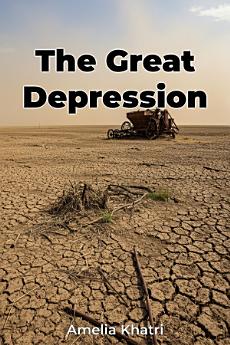The Great Depression
Feb 2025 · Publifye AS
Ebook
60
Pages
family_home
Eligible
info
reportRatings and reviews aren’t verified Learn More
About this ebook
The Great Depression examines the causes, global impact, and lessons from the most significant economic downturn of the 20th century. It explores how the prosperity of the 1920s transformed into widespread poverty and unemployment, reshaping the economic and political landscape. The book highlights the role of income inequality and speculative excesses in creating an unstable economic foundation. It investigates the 1929 stock market crash, banking panics, and contraction of international trade as immediate catalysts.
The book uniquely assesses governmental interventions, comparing Hoover's laissez-faire approach with Roosevelt's New Deal. The book argues that the Great Depression was a systemic failure rooted in unsustainable practices and inadequate regulation. It meticulously dissects events leading to the crash and the crisis's spread through banking and trade. Separate chapters are dedicated to the experiences of Germany, Britain, and Japan, showing diverse impacts and responses.
The book provides a comprehensive analysis supported by primary and secondary sources, offering both quantitative and qualitative assessments of the Depression's impact. The book concludes by outlining lessons relevant to contemporary economic challenges.
The book uniquely assesses governmental interventions, comparing Hoover's laissez-faire approach with Roosevelt's New Deal. The book argues that the Great Depression was a systemic failure rooted in unsustainable practices and inadequate regulation. It meticulously dissects events leading to the crash and the crisis's spread through banking and trade. Separate chapters are dedicated to the experiences of Germany, Britain, and Japan, showing diverse impacts and responses.
The book provides a comprehensive analysis supported by primary and secondary sources, offering both quantitative and qualitative assessments of the Depression's impact. The book concludes by outlining lessons relevant to contemporary economic challenges.
Rate this ebook
Tell us what you think.
Reading information
Smartphones and tablets
Install the Google Play Books app for Android and iPad/iPhone. It syncs automatically with your account and allows you to read online or offline wherever you are.
Laptops and computers
You can listen to audiobooks purchased on Google Play using your computer's web browser.
eReaders and other devices
To read on e-ink devices like Kobo eReaders, you'll need to download a file and transfer it to your device. Follow the detailed Help Center instructions to transfer the files to supported eReaders.








